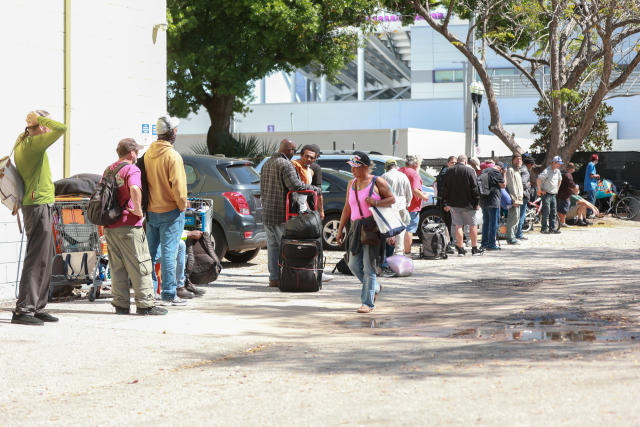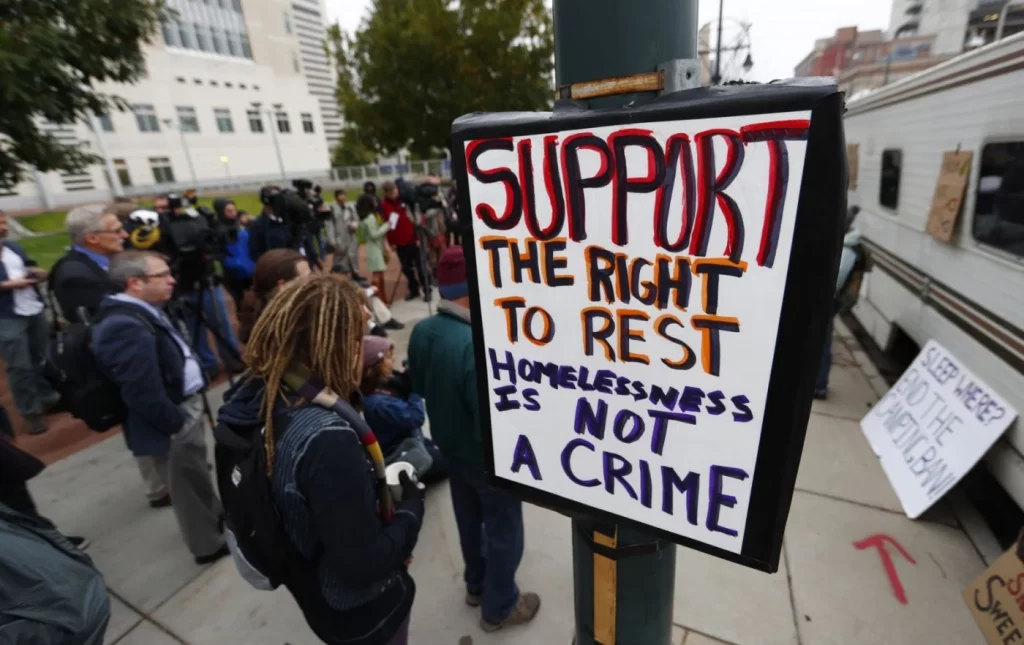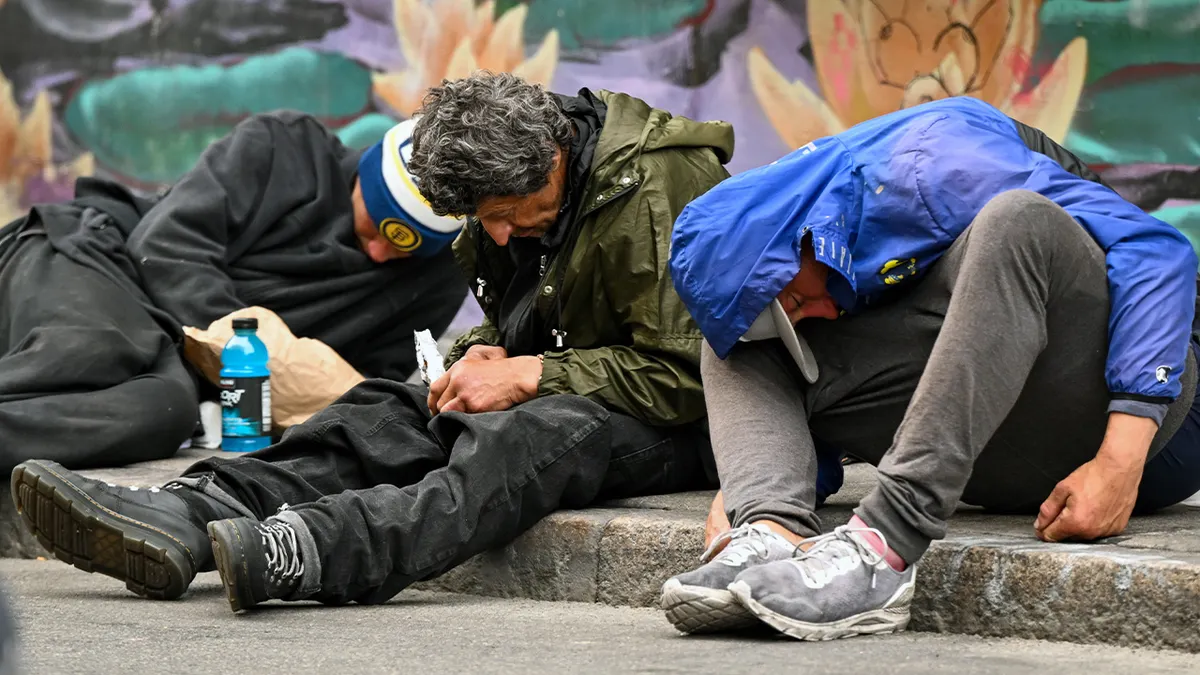Florida’s Homeless Law, recently enacted, aims to address the homelessness crisis across the state by implementing strict regulations around public camping and providing more structured approaches to dealing with homelessness. This law, however, has significant economic impacts on local businesses, especially in key urban areas like Miami, Jacksonville, and Tampa. The law creates both opportunities and challenges for business owners, who face new realities in terms of consumer behavior, compliance costs, and operational disruptions.
Overview of Florida’s Homelessness Law
Florida’s Homeless Law outlines measures to combat the increasing visibility of homelessness in public spaces. Under the law, public camping is prohibited, and local governments are tasked with creating designated areas where homeless populations can reside. The law also focuses on transitioning homeless individuals into permanent housing solutions through coordinated efforts between local governments and private organizations.
This law has sparked a debate about the impacts on local businesses, especially those operating near areas designated for homeless communities. Local governments are now required to enforce these regulations, creating a ripple effect across various business sectors.

Economic Challenges Faced by Local Businesses
One of the most immediate effects of the law is the economic challenges faced by businesses in cities heavily impacted by homelessness. Retailers and service-based businesses in downtown areas are experiencing disruptions due to enforcement measures, which often lead to increased policing and a shift in foot traffic.
Businesses located in areas with high homeless populations are reporting reduced customer visits, as safety concerns and public perceptions of cleanliness become paramount. This has led to concerns over revenue losses and economic stagnation, particularly in tourism-heavy regions.

Impact of Homelessness on Business Operations
Homelessness directly affects business operations in numerous ways. For example, businesses may see reduced foot traffic as customers avoid areas where homeless populations are concentrated. This, in turn, leads to a decline in sales, particularly in the retail, food, and hospitality industries. Additionally, businesses may have to allocate more resources to security measures and property maintenance due to the presence of homeless individuals near their premises.
Public perception also plays a significant role in consumer behavior. When potential customers view an area as unsafe or unclean, it negatively impacts their willingness to frequent businesses, leading to a decline in overall economic activity.

Business Costs of Implementing the Law
For many business owners, one of the primary concerns is the costs associated with implementing Florida’s Homeless Law. Businesses located near the designated areas for homeless individuals are required to comply with new regulations, which may involve altering their operations or enhancing security measures.
The costs of increased security, property maintenance, and legal compliance can add up quickly, especially for small businesses operating on thin margins. Additionally, businesses may need to invest in infrastructure changes to adapt to the shifting landscape, further straining their financial resources.

Local Government Responses
Local governments in Florida have responded in various ways to the challenges posed by homelessness and its impact on businesses. For example, Miami-Dade County has introduced initiatives like tiny house villages and expanded shelter capacity, aimed at providing short-term solutions for the homeless population while reducing the burden on local businesses.
Jacksonville, on the other hand, has focused on improving coordination between law enforcement and local businesses to ensure that the law is enforced fairly and without causing excessive disruption. However, many local governments are still grappling with the balance between enforcing the law and supporting the business community.
Social and Economic Balance
The social and economic consequences of Florida’s Homeless Law raise important questions about balancing the rights of homeless individuals with the needs of local businesses. Many argue that while the law addresses important public health and safety concerns, it also places undue pressure on businesses to bear the financial burden of its enforcement.
At the same time, businesses benefit from a cleaner, safer public environment, which may attract more customers and boost economic activity. Finding the right balance between these competing interests is crucial for ensuring long-term economic stability in Florida’s urban centers.
Homelessness and Consumer Behavior
The law has also had a noticeable effect on consumer behavior. As homelessness becomes more visible in certain areas, customers may avoid businesses in these regions, fearing for their safety or being put off by the presence of homeless individuals. This, in turn, forces businesses to rethink their strategies for attracting and retaining customers, potentially leading to increased marketing or rebranding efforts.
Additionally, businesses in areas less affected by homelessness may see a boost in sales, as customers shift their spending to perceived “safer” neighborhoods. This creates a stark contrast between businesses located in different parts of the same city, further complicating the economic landscape.
Economic Benefits of Addressing Homelessness
While the costs of implementing Florida’s Homeless Law are significant, there are potential economic benefits for businesses if the issue of homelessness is effectively managed. Businesses located in areas that successfully reduce homelessness may experience increased foot traffic, improved public perception, and higher revenues as a result.
Furthermore, addressing homelessness can create new economic opportunities for businesses that provide services related to housing, social support, or employment training for homeless individuals. In the long term, reducing homelessness could help stabilize Florida’s economy by fostering a healthier, more vibrant business environment.
Collaborative Solutions Between Businesses and Local Governments
For many businesses, collaboration with local governments offers the best path forward. By working together, companies and local authorities can develop solutions that address both homelessness and the economic challenges it poses.
For example, businesses may be incentivized to participate in homelessness outreach programs, offering job training or employment opportunities to homeless individuals. In return, local governments could offer tax incentives or grants to help businesses offset the costs of compliance with the law.
Future Projections for Florida’s Business Environment
Looking ahead, the future business environment in Florida will likely be shaped by how effectively the state manages the homelessness crisis. If local governments can successfully balance the enforcement of the law with the needs of the business community, there is potential for significant economic growth.
However, if the challenges of homelessness are not addressed in a meaningful way, businesses in affected areas may continue to struggle with declining revenues, rising costs, and a shrinking customer base.
Conclusion
The economic impacts of Florida’s Homeless Law on local businesses are multifaceted, ranging from increased operational costs to changes in consumer behavior. While the law presents challenges, it also offers opportunities for businesses to collaborate with local governments in addressing the homelessness crisis. By finding the right balance between enforcement and support, Florida’s business community can play a pivotal role in fostering long-term economic stability.





